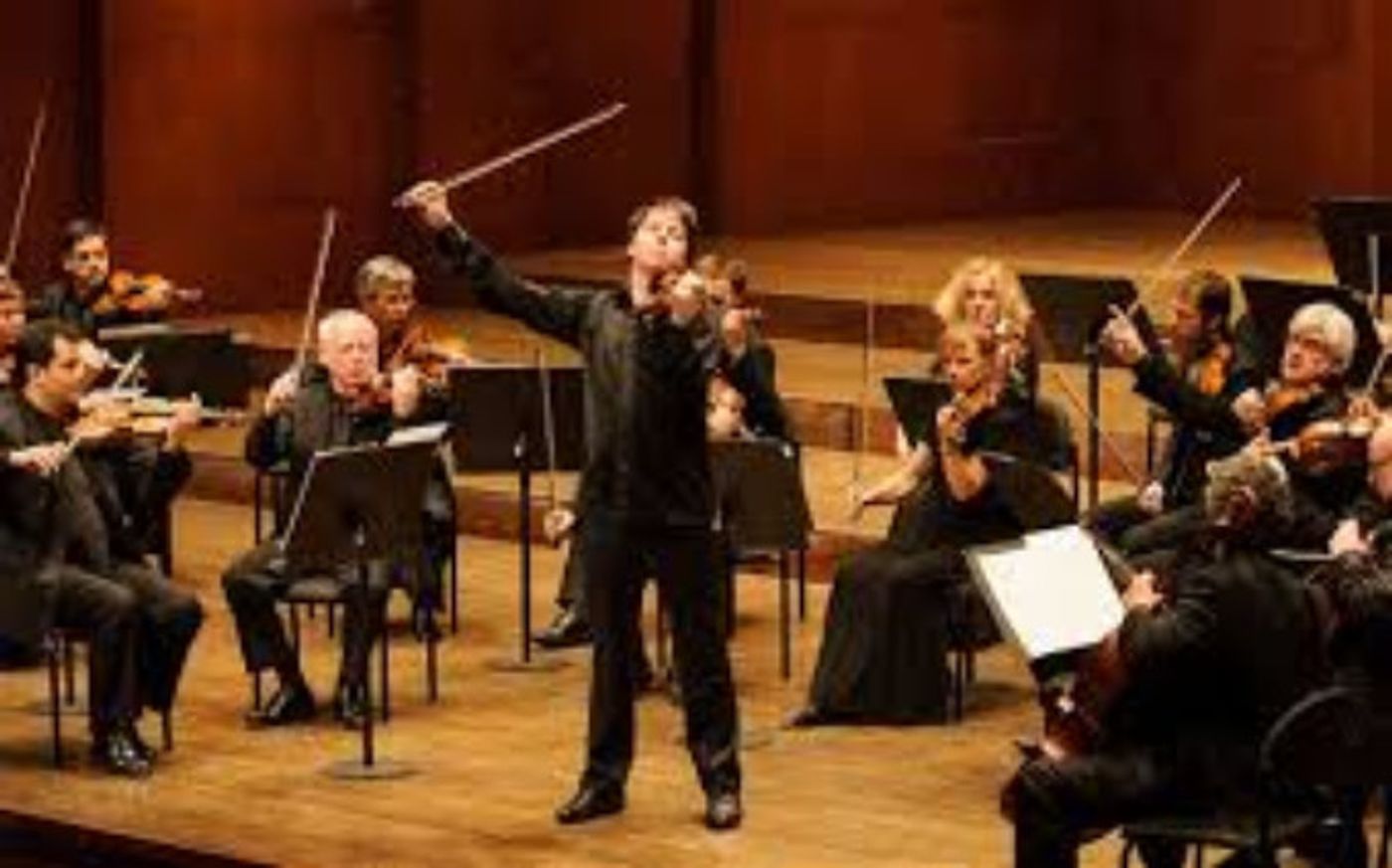Review: LA JOLLA MUSIC SOCIETY PRESENTS THE ACADEMY OF ST MARTIN IN THE FIELDS at San Diego's Jacobs Music Center

The Academy of St Martin in the Fields chamber orchestra, with first violinist and music director Joshua Bell, performed Friday night at San Diego's Jacobs Music Center as part of the La Jolla Music Society's ongoing Orchestra Series. Over the years the series has featured only the best of the world's symphony orchestras, including many that often appear in world top-ten lists. The Academy of St Martin in the Fields, a chamber orchestra with only 43 musicians rather than the 80 or so usually on the stage in a symphony orchestra, isn't competing with the top ten, but it's still worthy of a world-class tag, especially with Joshua Bell as music director and soloist. For much of its 60-year history, the orchestra has performed without a conductor, which is why Bell gives the downbeat and occasional cues from his first-chair seat in the violin section.
 The program consisted of Mendelssohn's overture to a Midsummer Night's Dream, Wieniawski's second violin concerto and Beethoven's sixth symphony, the "Pastoral." Mendelssohn's overture, with its energetic scurrying strings and attractive melodies, is always a crowd pleaser. Tempos were appropriately brisk, and the smaller orchestra size made for clearer textures and a lighter sound than in the large-orchestra performances usually heard. The music certainly works either way, perhaps because it was premiered in 1827 when the transition to larger orchestras was well underway, but not yet complete. The tradeoff is between clean airy sprightliness and more emphatic rhythmic drive, the winner probably determined by the mood of the listener. I admit to a bias toward larger for this particular piece.
The program consisted of Mendelssohn's overture to a Midsummer Night's Dream, Wieniawski's second violin concerto and Beethoven's sixth symphony, the "Pastoral." Mendelssohn's overture, with its energetic scurrying strings and attractive melodies, is always a crowd pleaser. Tempos were appropriately brisk, and the smaller orchestra size made for clearer textures and a lighter sound than in the large-orchestra performances usually heard. The music certainly works either way, perhaps because it was premiered in 1827 when the transition to larger orchestras was well underway, but not yet complete. The tradeoff is between clean airy sprightliness and more emphatic rhythmic drive, the winner probably determined by the mood of the listener. I admit to a bias toward larger for this particular piece.
 Although many in San Diego are familiar with the orchestra because of its hundreds of recordings with founder Sir Neville Mariner and others, Joshua Bell was probably the biggest draw of the evening, and he lived up to his reputation with a warm, virtuosic interpretation of Wieniawski's second concerto, the most often performed of the composer's relatively small catalog of works. Bell's rich, full sound meshed beautifully with the orchestra to produce an outstanding performance. Whether center-stage as soloist or seated in the principal violin chair, he held the eye with continuous smooth flowing motion, seemingly completely absorbed in the music
Although many in San Diego are familiar with the orchestra because of its hundreds of recordings with founder Sir Neville Mariner and others, Joshua Bell was probably the biggest draw of the evening, and he lived up to his reputation with a warm, virtuosic interpretation of Wieniawski's second concerto, the most often performed of the composer's relatively small catalog of works. Bell's rich, full sound meshed beautifully with the orchestra to produce an outstanding performance. Whether center-stage as soloist or seated in the principal violin chair, he held the eye with continuous smooth flowing motion, seemingly completely absorbed in the music
The Beethoven symphonies, filled with power and intense passion at all tempos, are almost always more fully realized with larger forces. But there are considerable merits to a chamber-orchestra version of the sixth. It is the most relaxed and genial of his nine symphonies--Beethoven's musical expression of what he felt on his frequent long walks in the woods and fields near Vienna. He said he felt happy while on those walks. In the music we hear his reaction to bird songs, flowing bubbling streams, and peasant dances, all brought vividly to life by the Academy of St Martin in the Fields' talented woodwind soloists and shimmering strings. The moments of thunder and rain sound more life-threatening in many performances. Here they were an interruption borne with mild annoyance and a newspaper over your head as you wait for the sun to reappear, which, of course, it soon did.
almost always more fully realized with larger forces. But there are considerable merits to a chamber-orchestra version of the sixth. It is the most relaxed and genial of his nine symphonies--Beethoven's musical expression of what he felt on his frequent long walks in the woods and fields near Vienna. He said he felt happy while on those walks. In the music we hear his reaction to bird songs, flowing bubbling streams, and peasant dances, all brought vividly to life by the Academy of St Martin in the Fields' talented woodwind soloists and shimmering strings. The moments of thunder and rain sound more life-threatening in many performances. Here they were an interruption borne with mild annoyance and a newspaper over your head as you wait for the sun to reappear, which, of course, it soon did.
The concerts of previous visitors in the La Jolla Music Society's orchestra series have, with few exceptions, excited audiences with more adventurous programming and at least one work designed to wow with virtuosity and power. The Academy of St Martin in the Fields chamber orchestra proved provided quieter, gentler pleasures with a satisfying conservative program of well-played popular works.
For a schedule of the concerts remaining in the La Jolla Music Society's 49th season, visit here.
Photos courtesy of the La Jolla Music Society.
Reader Reviews

Videos

